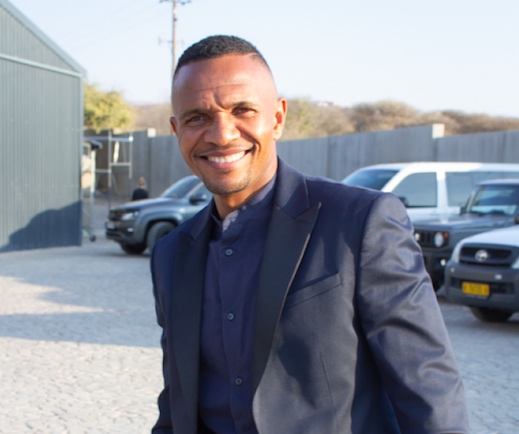JOHANNESBURG – South Africa’s ruling African National Congress (ANC) suspended party deputy president Jacob Zuma yesterday pending his trial on a rape charge.Zuma, an ANC heavyweight once seen as the frontrunner to succeed President Thabo Mbeki in 2009, was charged with rape on Tuesday following allegations made by an unnamed 31-year-old friend.
He has maintained his innocence. The ANC’s National Working Committee said in a statement that Zuma will “not act or pronounce in the capacity of deputy president of the ANC for the duration of this trial”.Zuma had previously said he would quit junior party posts but would not step down as party deputy president.The media and opposition have demanded his sacking over the rape charges which come on top of corruption charges that led to Mbeki sacking him as his deputy in June.Meanwhile, South African media lashed out at the secret court appearance of Zuma on the rape charge, saying the news blackout showed a contempt for democracy.Journalists and photographers were barred from covering his appearance.”Is Jacob Zuma above the law?,” asked the Johannesburg-based daily The Star in an editorial.”Our courts are public places…All of this changed when Zuma appeared in the magistrate’s court,” it said.The editorial criticised the fact that his case did not appear on the court roll, that Zuma appeared before opening hours, that reporters were not allowed access to the charge sheet and that the court was cleared of staff.It also complained that photographers were “jostled and manhandled” by the police’s VIP protection unit.The Star said that when reporters queried this, Johannesburg police area commissioner Oswald Reddy replied: “This is highly confidential and no one is allowed in.””This chain of events amounts to treating our democracy with nothing but contempt,” The Star concluded.Another Johannesburg daily, The Citizen, headlined its front page story: “What’s so special about Zuma? VIP treatment in court case”, quoting lawyers saying the preferential treatment was a “sad day for justice”.The South African National Editors Forum (SANEF) issued a statement slamming what it described as a breach of media freedom.”SANEF is alarmed at this secrecy, which is contrary to the spirit of our constitution and the openness and transparency of justice for which it stands.”Journalists…are the eyes and ears of the public.The media is a force for good in society and an essential element of democracy – it should be allowed to do its job unhindered,” the media organisation said.National police spokeswoman Sally de Beer declined to comment on the controversy.”We’ve taken note and that’s all I can say,” she told AFP.The National Prosecuting Authority said it could not inform the media ahead of the court appearance because it was not allowed to name the accused before he was charged.”We would sympathise with the fact that the media was frustrated in that they couldn’t get pictures of that appearance,” NPA spokesman Makhosini Nkosi told the public broadcaster.”How do you inform the media about this, because first of all you can’t mention a person’s name until he has been charged?” he asked.The Zuma case has been making frontpage headlines for months and has plunged the ruling party in crisis.President Thabo Mbeki fired him in June after a court found Zuma’s financial adviser guilty of corruption.Shortly afterwards, the National Prosecuting Authority announced it would charge him with two counts of corruption.Zuma has maintained his innocence, hinting that it was a plot to block his path to the presidency when Mbeki steps down after his second term ends in 2009.Reports of the alleged rape surfaced four weeks ago, leading to Zuma’s indictment this week.- Nampa-AFP-ReutersThe ANC’s National Working Committee said in a statement that Zuma will “not act or pronounce in the capacity of deputy president of the ANC for the duration of this trial”.Zuma had previously said he would quit junior party posts but would not step down as party deputy president.The media and opposition have demanded his sacking over the rape charges which come on top of corruption charges that led to Mbeki sacking him as his deputy in June.Meanwhile, South African media lashed out at the secret court appearance of Zuma on the rape charge, saying the news blackout showed a contempt for democracy.Journalists and photographers were barred from covering his appearance.”Is Jacob Zuma above the law?,” asked the Johannesburg-based daily The Star in an editorial.”Our courts are public places…All of this changed when Zuma appeared in the magistrate’s court,” it said.The editorial criticised the fact that his case did not appear on the court roll, that Zuma appeared before opening hours, that reporters were not allowed access to the charge sheet and that the court was cleared of staff.It also complained that photographers were “jostled and manhandled” by the police’s VIP protection unit.The Star said that when reporters queried this, Johannesburg police area commissioner Oswald Reddy replied: “This is highly confidential and no one is allowed in.””This chain of events amounts to treating our democracy with nothing but contempt,” The Star concluded.Another Johannesburg daily, The Citizen, headlined its front page story: “What’s so special about Zuma? VIP treatment in court case”, quoting lawyers saying the preferential treatment was a “sad day for justice”.The South African National Editors Forum (SANEF) issued a statement slamming what it described as a breach of media freedom.”SANEF is alarmed at this secrecy, which is contrary to the spirit of our constitution and the openness and transparency of justice for which it stands.”Journalists…are the eyes and ears of the public.The media is a force for good in society and an essential element of democracy – it should be allowed to do its job unhindered,” the media organisation said.National police spokeswoman Sally de Beer declined to comment on the controversy.”We’ve taken note and that’s all I can say,” she told AFP.The National Prosecuting Authority said it could not inform the media ahead of the court appearance because it was not allowed to name the accused before he was charged.”We would sympathise with the fact that the media was frustrated in that they couldn’t get pictures of that appearance,” NPA spokesman Makhosini Nkosi told the public broadcaster.”How do you inform the media about this, because first of all you can’t mention a person’s name until he has been charged?” he asked.The Zuma case has been making frontpage headlines for months and has plunged the ruling party in crisis.President Thabo Mbeki fired him in June after a court found Zuma’s financial adviser guilty of corruption.Shortly afterwards, the National Prosecuting Authority announced it would charge him with two counts of corruption.Zuma has maintained his innocence, hinting that it was a plot to block his path to the presidency when Mbeki steps down after his second term ends in 2009.Reports of the alleged rape surfaced four weeks ago, leading to Zuma’s indictment this week.- Nampa-AFP-Reuters
Stay informed with The Namibian – your source for credible journalism. Get in-depth reporting and opinions for
only N$85 a month. Invest in journalism, invest in democracy –
Subscribe Now!









